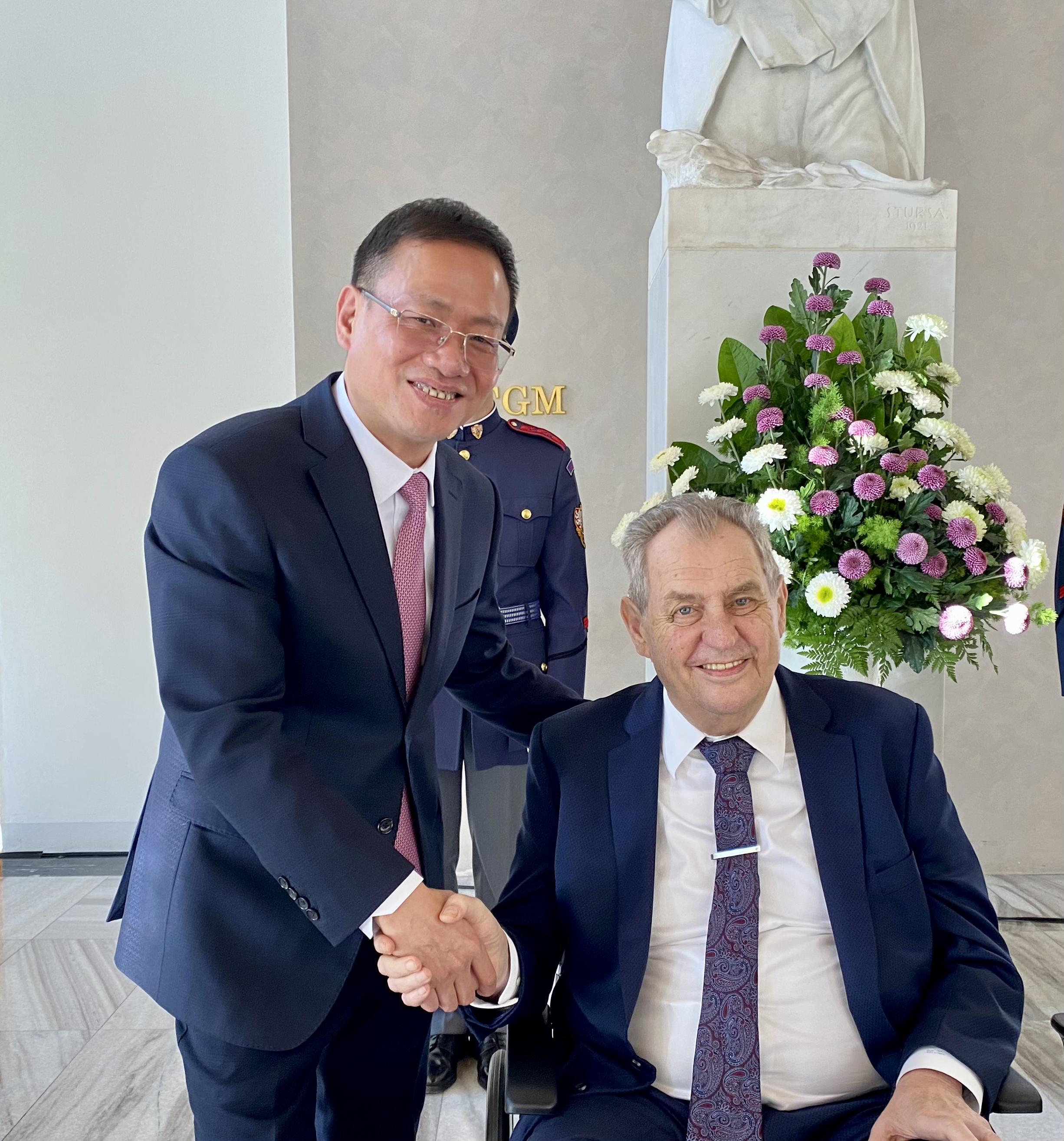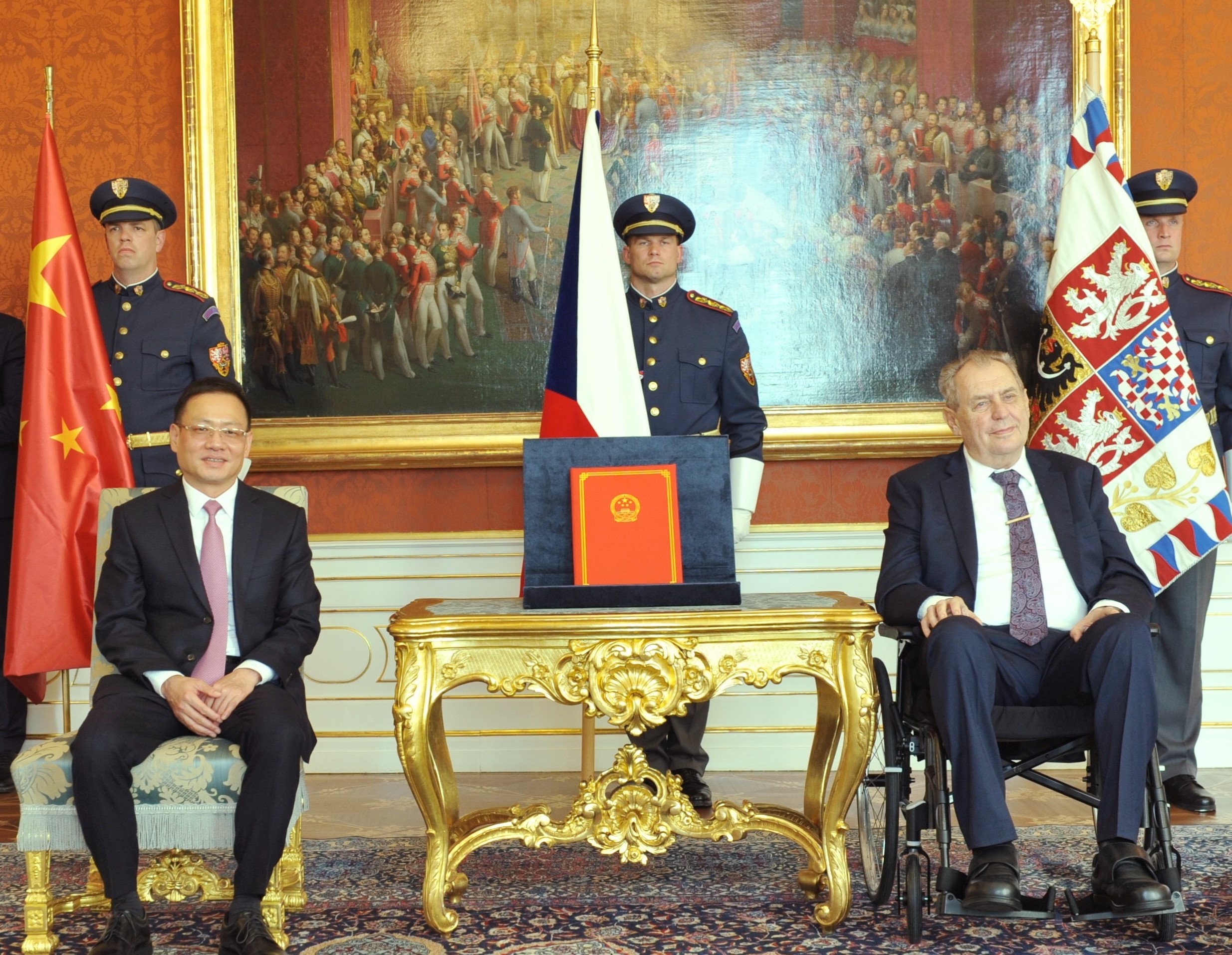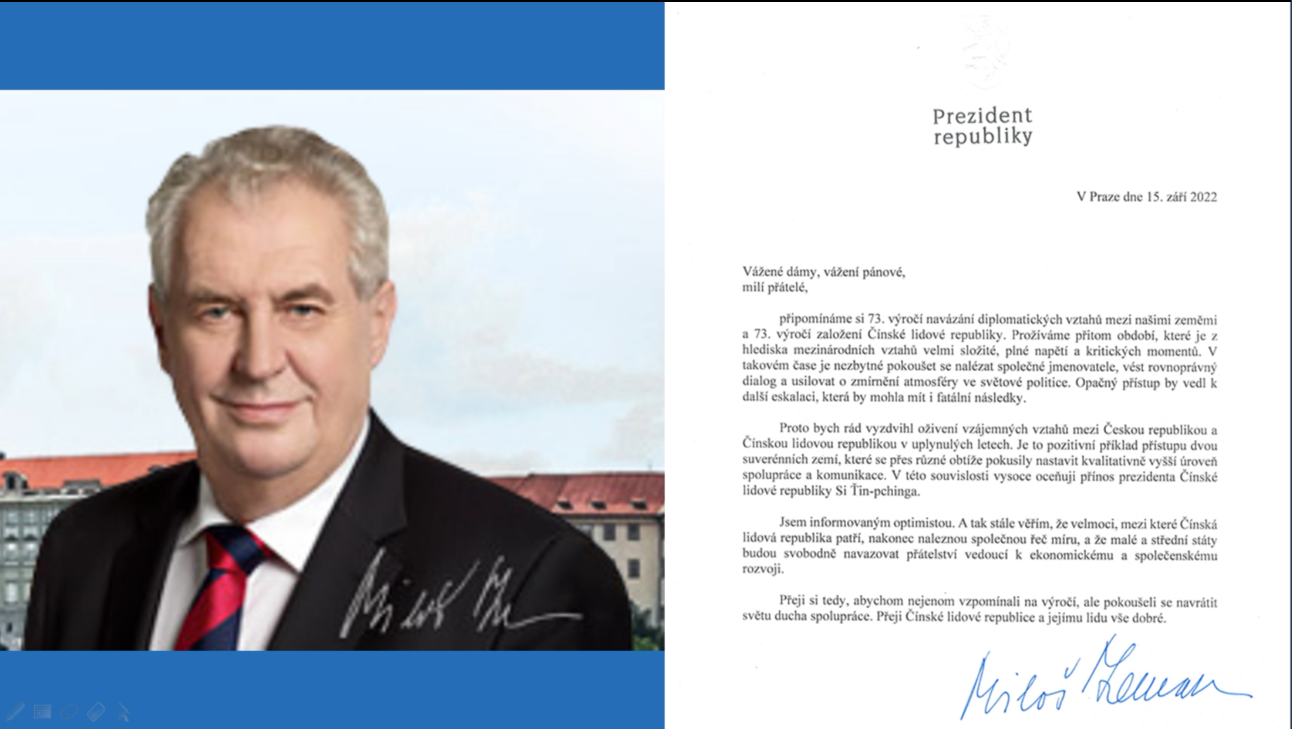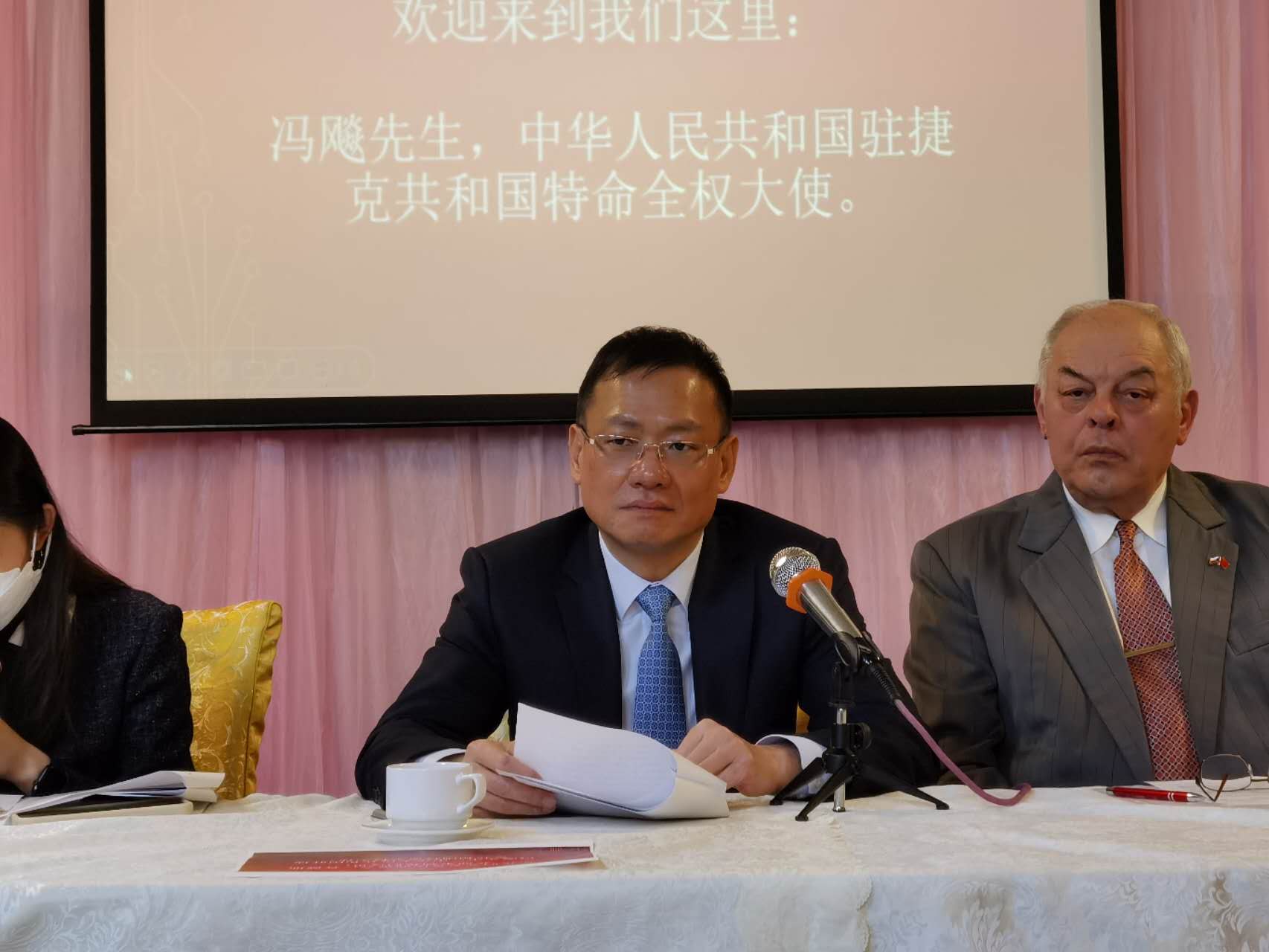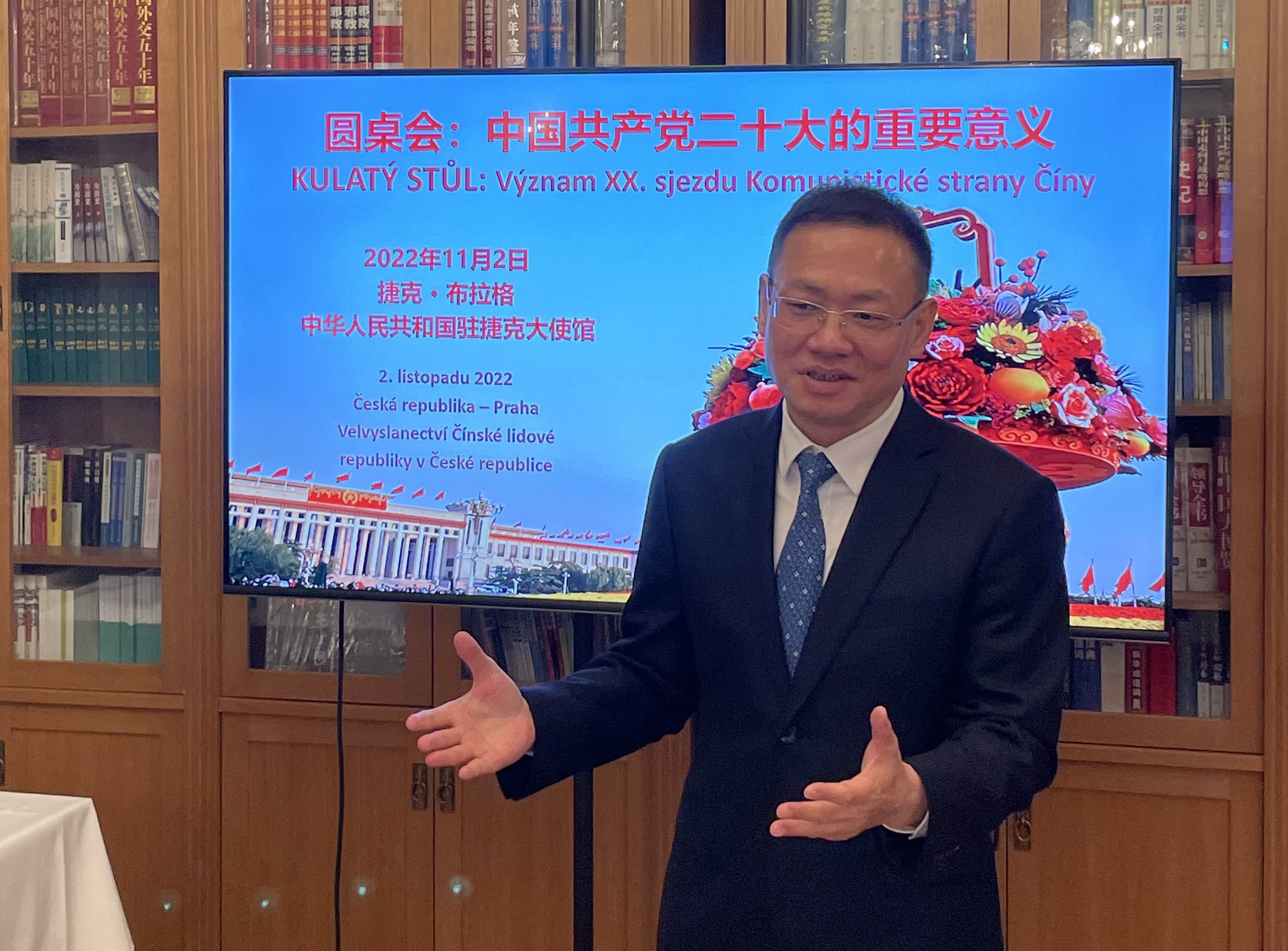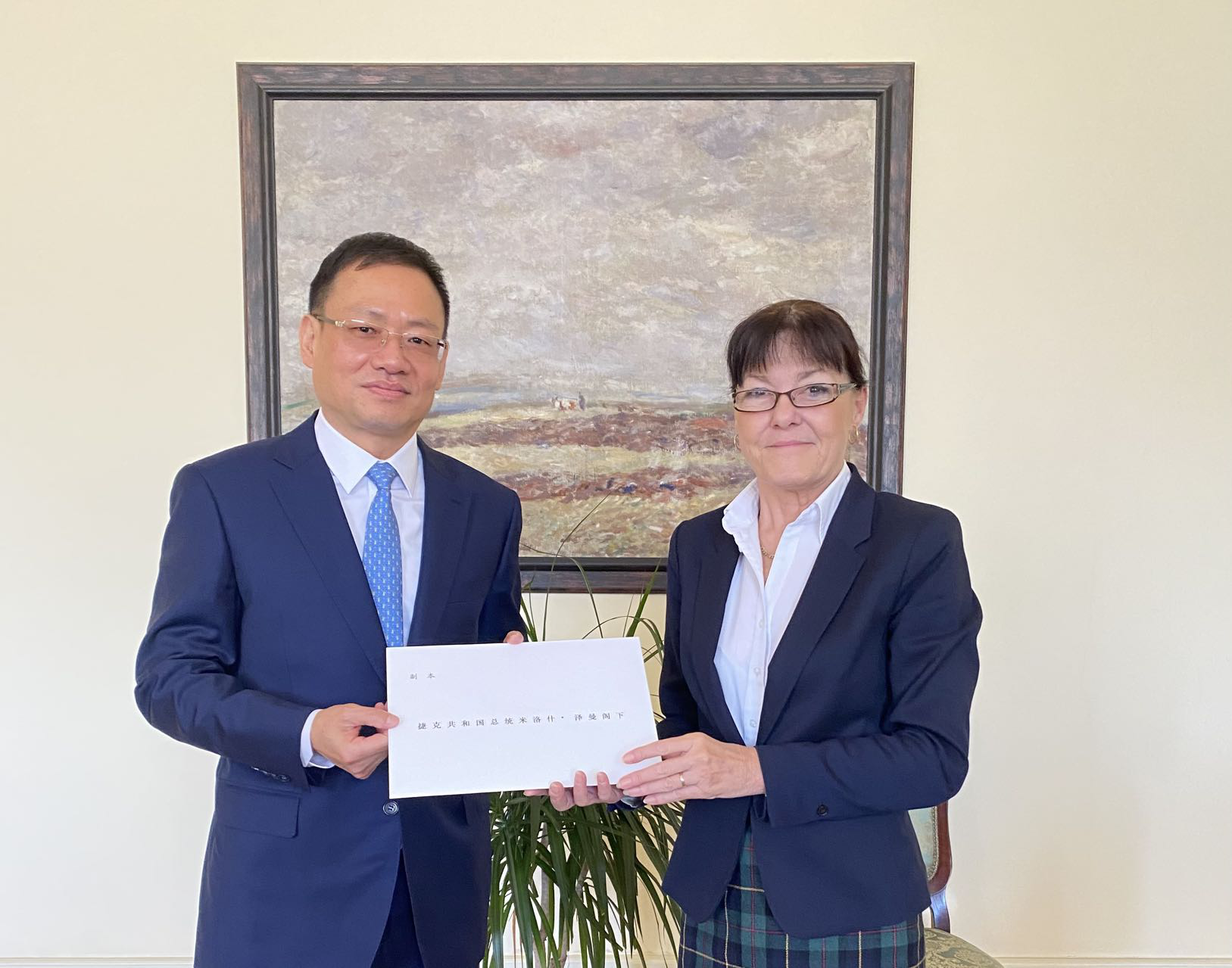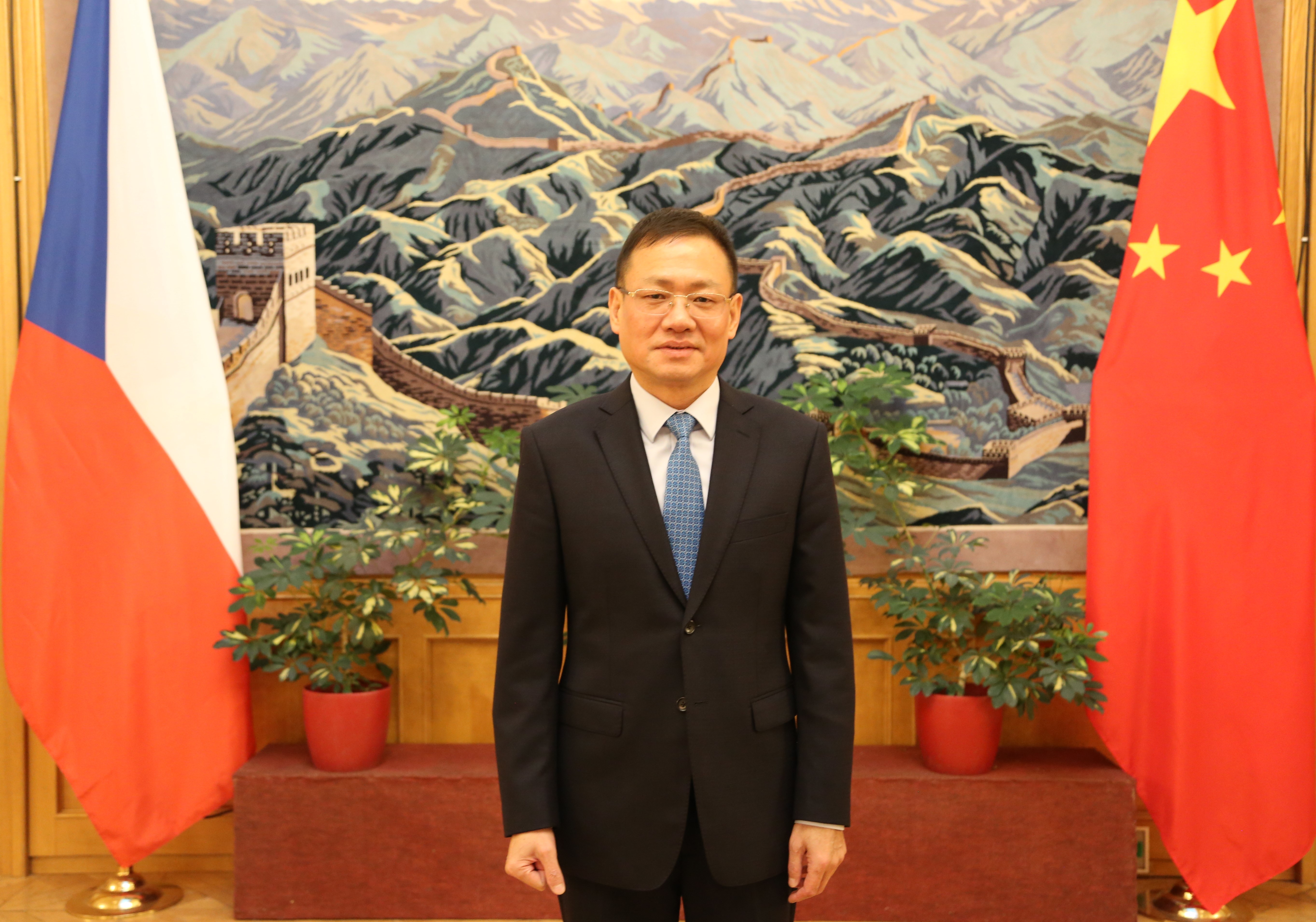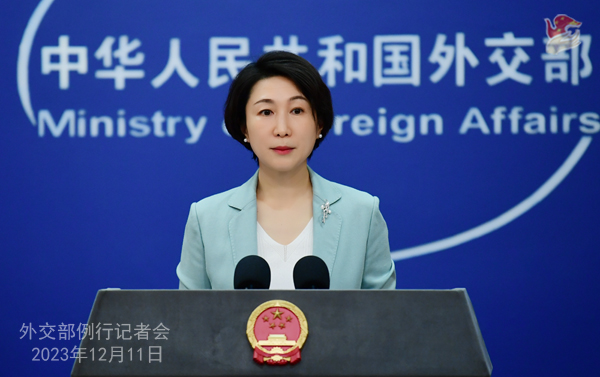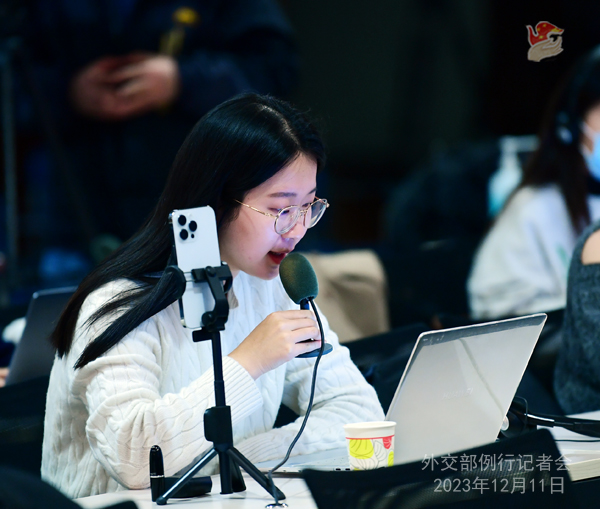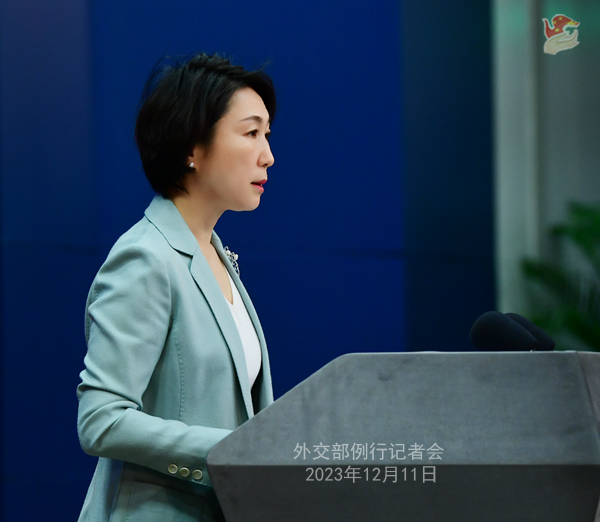| Foreign Ministry Spokesperson Mao Ning’s Regular Press Conference on December 11, 2023 |
| 2023-12-11 19:55 |
|
CCTV: On December 10, the Philippines sent vessels to intrude into waters of Ren’ai Jiao in China’s Nansha Qundao in an attempt to send construction materials to the illegally grounded warship there. The mission was blocked by China Coast Guard. Afterwards, the Philippine President and the Philippine National Security Council blamed China. Do you have any comment? Mao Ning: On December 10, one cargo vessel, one official vessel and two coast guard ships of the Philippines, without permission from the Chinese government, intruded into adjacent waters of Ren’ai Jiao in China’s Nansha Qundao in an attempt to send construction materials to the illegally grounded warship at the reef. In disregard of the warnings of the China Coast Guard (CCG) vessels, a Philippine vessel went headlong towards Ren’ai Jiao’s lagoon and dangerously rammed a CCG ship on the scene. This gravely violated China’s sovereignty and jeopardized the safety of the Chinese ships and personnel. The CCG took necessary enforcement measures against the Philippine ship in accordance with domestic and international law, which were professional, restrained, justified and legitimate. The Chinese Foreign Ministry has lodged serious démarche in strong protest to the Philippine side. I need to stress that Ren’ai Jiao is part of China’s Nansha Qundao. China has indisputable sovereignty over Nansha Qundao, including Ren’ai Jiao, and their adjacent waters. This was established in the long course of history and is consistent with international law including the UN Charter. It is against the principles of international law and legally untenable for the Philippines to cite the “award” of the South China Sea arbitration, which is illegal, null and void, to claim that Ren’ai Jiao falls within its exclusive economic zone and continental shelf and deny China’s sovereignty over it. The responsibility for the recent emergencies in waters of Ren’ai Jiao lies completely with the Philippines. The root cause is that the Philippines has broken its promise and refused to tow away the illegally grounded warship at the reef and attempted to reinforce it on a large scale in an attempt to permanently occupy Ren’ai Jiao. China firmly opposes the Philippines’ attempt to occupy Ren’ai Jiao and has made clear its solemn position to the Philippine side at various levels and through multiple channels, demanding that the Philippines will not send construction materials to the illegally grounded warship for large-scale repair and reinforcement and putting forward proposals for properly managing the situation. However, the Philippine side, in disregard of China’s goodwill, good faith and restraint, broke its promise and kept stirring up trouble by infringing on China’s sovereignty and making provocative moves in waters of Ren’ai Jiao. It has also been spreading disinformation to hype up the incidents. This gravely violates international law and the Declaration on the Conduct of Parties in the South China Sea (DOC) and seriously infringes on China’s territorial sovereignty and maritime rights and interests. We once again urge the Philippines to stop infringing on China’s sovereignty and making provocative moves, stop groundlessly attacking and smearing China, and avoid undermining peace and stability in the South China Sea. We will continue to do what is necessary in accordance with domestic and international laws to resolutely respond to provocative moves that infringe on China’s sovereignty and defend our territorial sovereignty and maritime rights and interests. NHK: Hong Kong held its first district council election guided by the principle of “patriots administering Hong Kong” on Sunday. What’s your comment? Mao Ning: The Hong Kong and Macao Affairs Office of the State Council has already made remarks on the Council Ordinary Election of the Hong Kong Special Administrative Region (HKSAR), which you may refer to. The election was the first of its kind since the restructuring of the district council system in Hong Kong. The election was well-organized, orderly, fair and just, which demonstrates a new prospect of good governance under the principle of “patriots administering Hong Kong”. We are fully confident that the new district councils will perform their duties in accordance with the law and believe that the newly elected district council members will serve as a bridge between the HKSAR Government and the Hong Kong people and help the former improve the system of community-level governance and improve its effectiveness.
CCTV: Yesterday marks the Human Rights Day. Can you introduce China’s achievements on protecting and promoting human rights? We also noted that a handful of Western countries have been attacking China under the pretext of human rights. What’s China’s comment? Mao Ning: On December 10, 1948, the UN General Assembly (UNGA) adopted the Universal Declaration of Human Rights, a significant document in the history of human civilization. In 1950, the UNGA designated December 10 as Human Rights Day. To commemorate the 75th anniversary of the Universal Declaration of Human Rights, China held an International Symposium in Beijing. Member of the Political Bureau of the CPC Central Committee and Foreign Minister Wang Yi attended the symposium and delivered a keynote speech, in which he elaborated on the important views of President Xi Jinping on human rights, China’s human rights development path, and China’s position and propositions on global human rights governance. The Beijing Declaration was issued at the symposium and received warm response. China holds a people-centered human rights philosophy and believes that a happy life for the people is the most important human right. We have built a moderately prosperous society in all respects, won the largest battle against poverty in human history and put in place the world’s largest education, social security, and healthcare systems. We have been working to improve the living environment for our people, develop the whole-process people’s democracy, advance the rule of law for human rights and safeguard social equity and justice. China has found a path towards better human rights that follows the trend of the times and fits our national realities and made historic progress in our human rights cause. Promoting and protecting human rights is the common cause of mankind. No country in the world is in the position to act as a “preacher” on human rights. The most authoritative comment on a country’s human rights conditions comes from its people. Countries’ right to independently choosing human rights development paths needs to be respected. Certain countries, while ignoring their own serious human rights issues, have been interfering in other countries’ internal affairs under the pretext of human rights. Such attempts reveal their double standards and hypocrisy. China will stay committed to advancing and protecting human rights, upholding the common values of humanity and engaging in human rights dialogue and cooperation based on equality and mutual respect. China will continue to work with all sides to protect human rights through security, support human rights through development and advance human rights through cooperation in a joint effort to promote the global human rights cause. Reuters: The Philippines on Monday has called actions of Chinese vessels against their boats in the South China Sea over the weekend a serious escalation. The Philippines has also this morning said that they are undeterred in protecting their sovereignty. Have the incidents between China and the Philippines in the South China Sea damaged bilateral ties and would diplomacy be of any use in improving the situation? Mao Ning: I have shared the facts and truth about what has happened. I would like to stress that the responsibility for the recent emergencies in waters of Ren’ai Jiao lies with the Philippines. The root cause is that the Philippines has broken its promise and refused to tow away the illegally grounded warship at the reef and tried to reinforce it in an attempt to permanently occupy Ren’ai Jiao. In light of the Philippines’ repeated provocations and infringement at Ren’ai Jiao and its waters, China has been committed to enhancing communication with the Philippines with sincerity and good will to properly handle the situation. We have also put forward proposals on managing and controlling the situation at Ren’ai Jiao. The ball is now with the Philippine side. We hope the Philippines will face up to the root cause of the issue, stop making provocations and creating trouble, and safeguard peace and stability in the South China Sea. China News Service: It was reported that the UN Security Council on December 8 voted on a resolution drafted by the UAE calling for an immediate humanitarian ceasefire in Gaza, but it was not adopted due to US veto. What is your comment? Mao Ning: Over the past two months since the outbreak of this round of Palestinian-Israeli conflict, Gaza has seen close to 20,000 civilians die from the fights and over one million people displaced. Ceasefire and end of hostilities is currently the top priority and reflects extensive international aspiration. Close to 100 countries, including China, co-sponsored the draft resolution tabled by the UAE representing Arab countries. We regret and are disappointed at the US veto—the only veto on the Security Council draft resolution calling for an immediate humanitarian ceasefire. Connivance at the conflict means heavier civilian casualties and worse humanitarian catastrophe, and will sow more seeds of hatred. On issues of war and peace, life and death, major countries with influence need to play a constructive role in helping end the fight, make utmost efforts to avoid civilian casualties, and stand on the side of peace and the side of life.
Dragon TV: According to reports, the EU Delegation in China issued a statement on December 10, reiterating concern over China’s severe human rights situation and urging China to “respect, protect and fulfil human rights for all, including Uyghurs, Tibetans and persons belonging to ethnic minorities across China”. It also mentions the death penalty and “pro-democracy” activists. What’s China’s comment? Mao Ning: The EU statement contains groundless accusation on China’s human rights conditions, spreads disinformation, tarnishes China’s image and gravely violates China’s internal affairs. China deplores and firmly opposes this and has made solemn démarches to the EU. China holds a people-centered approach and has scored historic achievements in protecting human rights. Xinjiang and Xizang have long enjoyed booming economy, harmonious and stable society, and effective protection and promotion of cultural heritage. The rights and freedoms of all ethnic groups, including the freedom of religious belief and the freedom to use and develop their ethnic groups’ spoken and written languages, are fully protected. Facts have long disproved the so-called “genocide” and “forced labor” as egregious lies. The human rights conditions there are at their historical best, as recognized by the international community. While pointing fingers at developing countries’ human rights conditions over the years, the EU is in fact experiencing worrying human rights conditions in itself. Recent years have seen in European countries infringement of the rights of refugees and migrants, rising exclusivism and racism, negligence over economic, social and cultural rights and the right to development, and selective application and double standards on issues such as freedom of press and forced labor. The UN High Commissioner for Human Rights pointed out that some EU countries are backsliding on fundamental human rights commitments. China strongly urges the EU to recognize China’s progress in the human rights cause, put down arrogance and bias, abandon the hypocritical double standards, take concrete action to improve its own human rights conditions, stop using human rights as a pretext to interfere in China’s internal affairs and judicial sovereignty, and stop politicizing, instrumentalizing and weaponizing human rights issues. China Daily: On December 8, the US Department of State issued a human rights report related to Xinjiang, saying that the Chinese authorities have committed genocide and crimes against humanity against the predominantly Muslim Uyghurs and members of other ethnic minority groups in Xinjiang and announcing sanctions on two Chinese officials. On the same day, the US Department of the Treasury added them to the Specially Designated Nationals List. The US Department of Homeland Security has also added three Chinese companies to the Uyghur Forced Labor Prevention Act (UFLPA) Entity list under domestic law. Do you have any comment on this? Mao Ning: The US has made up and spread the false narrative on Xinjiang and imposed illegal sanctions on Chinese companies and officials citing the so-called human rights issues in Xinjiang. This has seriously undermined the interests of relevant Chinese companies and individuals, seriously interfered in China’s internal affairs and seriously breached the basic norms governing international relations. We are firmly against and strongly condemn that. What Xinjiang has achieved in its development is there for all to see and China’s Xinjiang policy is widely supported by the people. The US has no right and is in no position to point fingers at the human rights situation in Xinjiang. The so-called “genocide” and “forced labor” are nothing but the biggest lie of the century spread by the US with the aim to contain and suppress China and has long been exposed in front of facts and truths. The US, under its own domestic law, has included Chinese entities and personnel into its sanction list in an attempt to disrupt Xinjiang’s prosperity and stability and hold back China’s development, which fully lays bare its malicious intention of using issues related to Xinjiang to contain China. The US is fraught with domestic human rights issues and it has a quite notorious international human rights record. If the US truly cared about human rights, it needs to earnestly address its domestic problems such as racial discrimination, gun violence and drug abuse. The last thing it should do is to veto the Security Council resolution calling for a humanitarian ceasefire, the only country that has done so, while the humanitarian disaster in Gaza deteriorates by the hour. We urge the US to stop smearing China, cancel the illegal unilateral sanctions on Chinese personnel and companies, and stop implementing wrongful acts such as the Uyghur Forced Labor Prevention Act. China will take resolute counter measures to protect the legitimate and lawful rights and interests of Chinese citizens and companies. AFP: The foreign ministry of the Philippines summoned the Chinese Ambassador over the recent collision in the South China Sea to lodge a protest with China. What’s your response? Mao Ning: The responsibility of the incident completely lies with the Philippines. The Ministry of Foreign Affairs of China has lodged démarches in strong protest to the Philippine side. Antara: On Gaza, what’s the next step that China will take after the US vetoed a UN Security Council resolution calling for an immediate humanitarian ceasefire in Gaza? Mao Ning: As the humanitarian crisis in Gaza drags on, the top priority is to realize a ceasefire. Though the Security Council resolution draft has been vetoed, the international community should not stop promoting ceasefire, protecting civilians, and easing the humanitarian crisis and the UN Security Council should not stop upholding justice and shouldering its responsibilities. China stands ready to work with the international community to pool all efforts on the common goal of ceasing hostilities in Gaza and work relentlessly to realize the goal.
Reuters: Viet Nam media has reported citing the Chinese ambassador to Viet Nam that China is ready to offer grants to Viet Nam to upgrade a railway link from Guangxi to Hanoi and also to speed up plans to develop other railway systems connecting both China and Viet Nam. Are there more details on this development? And whether this topic is going to be a top discussion when President Xi Jinping visits Viet Nam this week? Mao Ning: China and Viet Nam enjoy a long-standing friendship and deepening practical cooperation. China is Viet Nam’s largest trading partner, and Viet Nam is China’s largest trading partner in ASEAN and the fourth largest trading partner in the world. In the field of connectivity, China and Viet Nam have carried out a lot of practical cooperation, such as the Hanoi light rail Line 2 constructed by Chinese enterprises, which is the first urban light rail project in Viet Nam and has made travel more convenient for Hanoi citizens. Cooperation between China and Viet Nam has brought tangible benefits to the two peoples. Both countries are willing to further expand bilateral cooperation. During General Secretary and President Xi’s upcoming visit to Viet Nam this time, the leaders will exchange views on deepening bilateral cooperation. Please stay tuned and check back for more information on this visit later. AFP: Also on the Philippines, the US has called for Beijing to halt what it called its “dangerous and destabilizing” actions in the South China Sea. What’s China’s response? Mao Ning: I’d like to stress that maritime disputes between China and the Philippines are issues between China and the Philippines. Any third party is not in the position of interfering in the issues. On the one hand, the US, out of selfish geopolitical calculations, has for some time been conniving at, emboldening and supporting the Philippines’ infringement and provocation in the South China Sea. Yet on the other, the US has been fanning disputes, misrepresenting facts, stoking confrontation and undermining regional peace and stability. China will continue to take necessary steps in accordance with domestic and international laws to firmly safeguard its territorial sovereignty and maritime rights and interests. Macau Monthly: In a recent interview, Viet Nam’s ambassador to China Pham Sao Mai said that General Secretary and President Xi Jinping will elevate China’s comprehensive strategic cooperative partnership with Viet Nam to a new level. Do you have any comment? Mao Ning: China and Viet Nam are both socialist countries on a path of reform and transformation in keeping with our respective national realities. Strengthening solidarity and friendship and deepening mutually-beneficial cooperation serves the shared interests of both sides and contributes to peace, stability and prosperity of the region and beyond. China and Viet Nam both attach high importance to the upcoming state visit by General Secretary and President Xi Jinping. A shared path and a shared future is the hallmark of China-Viet Nam relations. An elevated bilateral relationship is a natural result in accordance with the overwhelming trend. Standing at a new historical point, the two sides will be guided by the high-level common understandings, carry forward our traditional friendship, hold dear our shared cause and mission, and make new progress in growing our comprehensive strategic cooperative partnership. AFP: I got a question on the Belt and Road Initiative and the country of Papua New Guinea. Its Prime Minister James Marape has promised to tread carefully with Belt and Road funding from China. He told AFP on Monday that he will not be “reckless” with foreign loans. Do you have any reaction to these comments? Mao Ning: Papua New Guinea is the first Pacific Island country to sign an MOU on Belt and Road cooperation and Belt and Road cooperation plans with China. It has played a leading role and set an example in the Belt and Road cooperation between China and Pacific Island countries. China stands ready to continue working with Papua New Guinea to synergize the development strategies, expand practical cooperation in various fields under the framework of the Belt and Road Initiative on the basis of mutual respect and equal-footed consultation, and pursue common development.
|
 | |||||||||||||||||||||||
|
|||||||||||||||||||||||
| |||||||||||||||||||||||
|
|
|||||||||||||||||||||||
http://www.chinaembassy.cz |

